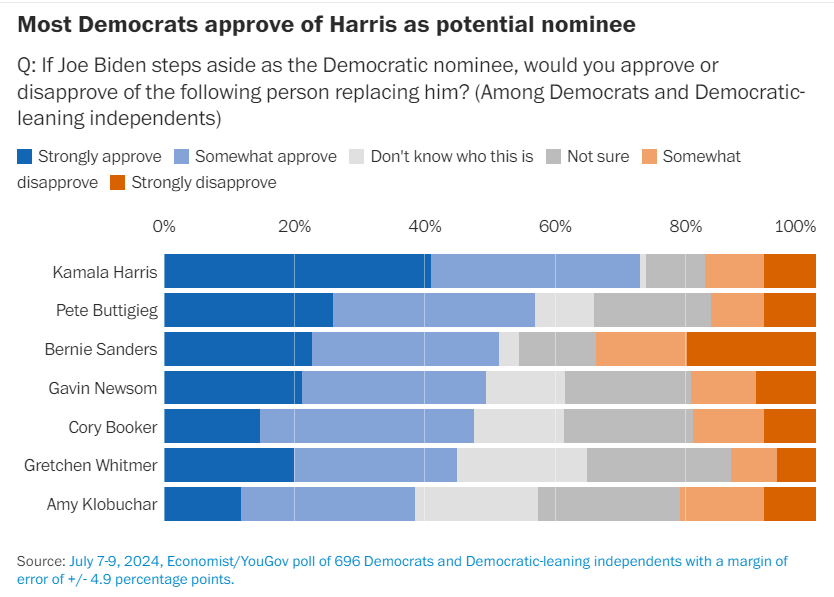One of my key concerns with Biden (other than his cognitive status) has been his unconditional support for Israel. I've written several OPs here on the topic, so I will only add here that the situation has only gotten worse in the last month while the focus here shifted (understandably) to this critical election.
While there may be softer rhetoric, and more "empathetic" remarks about the rights and needs of Palestinians from Harris, there is no good reason to assume a major shift in policy. The fact is, though, that Trump will go even further than Biden ever did, very likely recognizing the annexation of the West Bank as some of his donors (including the far-Right Zionist, Miriam Adelson) want him to do. So there's just no candidate C with a chance of winning who can bring US policies within the purview of international law as decreed by both the ICJ and ICC as well as multiple UN Security Resolutions. With Gaza in ruins, a multi-front war creeping ever-more steadily into high-gear, the situation is bleak. Trump will surely be the more aggressive leader of the two.
My own position is that Harris has expressed concern (more than Biden to be sure) for Palestinians rhetorically, and she is not responsible for his decisions. Therefore, when protests and pressure resume, which I hope they do soon, I believe we will not see the same vitriol and villification that we did of Genocide Joe. Remember that the premise of this election is largely a commitment to democracy, human rights, and moral integrity vs. authoritarian impulses, repression of those who are "not like us" and the lionization of raw power over humane and just principles.
In that context, a (small "d") democratic leader, even in a quasi-oligarchical polity, should be expected to hear and respond to the pressure of masses of voters (and voters in this case very valuable in such a close election) as the young, progressive, pro-Palestinian protestors who would very much like to prevent Trump from taking office, but who were simply incapable of voting for Biden. I hope, for Harris' sake and that of the country, that she proves to be much more responsive not only in style, but in substance, to the protestors who have not faded away just because the media took them off the front pages. As universities begin to open in only weeks, we will see a battle between MAGA Republicans who proudly condemn the protestors, the professors that teach them, the administrative faculty of liberal arts colleges, and Harris. What will her response be? I hope she gives us something to contrast with the bigoted, militaristic, McCarthyite rhetoric of Trump-- who called Biden a "Palestinian...A bad Palestinian" as a slur on national TV in the famous June 27 debate. I hope she will oppose purges of liberal arts faculty and students, admit that global opinion from the UN, to the highest international courts, to most countries in the world, cannot be dismissed, as Biden glibly did as "meritless and without any factual basis." Unfortunately that is simply not true.
I don't expect a total reversal, but hope at the very least for a return to pluralism and democracy in the simple sense of not penalizing those who oppose this ongoing massacre, but instead recognizing the importance of having serious dialogue about where to go from here. This is not the time or place to discuss possible policy options. I only mean to say that it will be important to me, and many other voters who have been shocked and alienated by Biden's policies regarding Israel, to see an open mind and earnest dialogue. In that context, here is Mehdi Hassan discussing Kamala Harris (whom he supported as an alternative to Biden right after the notorious Biden debate of 6/27). The clip is from Democracy Now!





